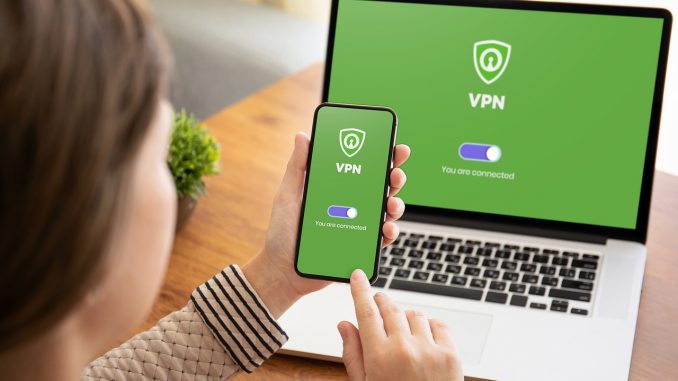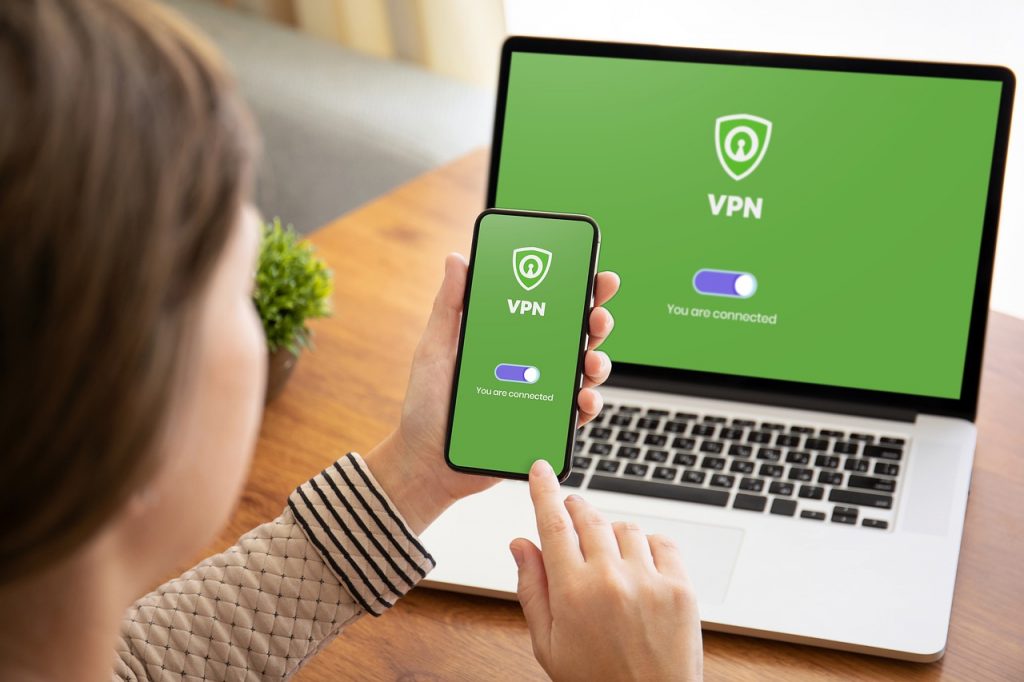

Image by Abigall Maddison from Pixabay
VPN stands for Virtual Private Network that offers you security when you are connected to a public network. It adds an extra layer of security that is crucial to protect your data over the public internet. When using a VPN, you can ensure that your data is safe and protected. Now let’s check in detail how VPNs work.
What is VPN and How do they Work?
When you connect your laptop, computer, tablet, or smartphone to a VPN, your device will act as if it is on the identical network as the VPN. Your network traffic is delivered using a safe connection to the VPN. As your computer acts like it is on the network, it enables you to privately use local network resources while you are on another side of the world.
When you surf the internet while using a VPN, your device contacts the site via an encrypted VPN connection. A VPN sends a request and receives a response from the website via a secure encrypted connection. For instance, if you are accessing Netflix using a USA-based VPN, then Netflix will perceive your connection as it is from the USA.
A VPN creates an encrypted tunnel between the network and an exit point in another position, which can be hundreds or thousands of miles away so that it appears as if you are at some other location. It consists of a series of simulated connections directed over the internet which move back and forth and encrypts your data between the web server and your client machine. Lots of internet protocols come with incorporated encryption like SSH, LDAPS, NNTPS, and HTTPS.
In contrast to proxy networks like TOR, VPNs must not significantly reduce the speed of your internet traffic under normal conditions. However, some VPNs work faster than others. One of the most crucial points is how many people (VPN customers) are using a VPN server at a single time.
What does a VPN hide?
A VPN offers protection to a variety of data that can be vulnerable to attack by hackers or cybercriminals. Here is the list of information that a VPN hides.
IP address and location
If someone gets access to your IP address, it means that he/she can access what you have been searching on the internet and what was your location when you searched for it. As a VPN makes use of an IP address other than yours, it enables you to retain your digital privacy and browse the internet secretly. With a VPN you can protect your search history from being viewed, collected, or sold.
Browsing history
It is not a secret what you search for on the internet. Your web browser and network service provider can keep almost everything you do over the net. Many sites you visit also keep your history. A VPN keeps your browsing history secure from cybercriminals.
Location for streaming
You may pay for streaming that allows you to stream things like sports and movies. OTT Platforms or Streaming services might not be accessible when you travel outside your country. In this case, a VPN enables you to choose an IP address of your country so that you can access the content on the streaming service.
Devices
A VPN can also keep your devices protected such as a computer, tablet, mobile phone, and laptop, from prying eyes. When you are using the internet, especially public WiFi, your devices can be the major target for cybercriminals and attackers. In brief, a VPN can protect the information you receive and send on your devices so that scammers will not be able to access your every move.
Why do people use VPNs?
The use of VPN is increasing continuously throughout the world and many factors explain this:
Security
Public internet is highly unsafe as it is susceptible to attack by hackers and scammers. When you are using public WiFi without proper encryption through a good VPN, hackers can target you, collect your data and intercept traffic
Privacy
People are more concerned about their online privacy than ever before. Whether it is a government surveillance effort or business data collection, the internet is becoming more obtrusive as everyday passes. VPN provides privacy by shielding your traffic as well as hiding your location and IP address.
Unrestricted Access
Streaming services and websites are using different methods and geo-restrictions to limit or block content across the world. When a site is using geo-blocks or a country is using censorship, a VPN is what provides you full access, enabling you to appear somewhere else in the world.
These are some of the reasons people are using VPN.
How Does A VPN Help Protect From Identity Theft?
Identity theft happens when scammers snip your private credentials or personal information and use it to do misconducts in your name such as taking over your account, filing tax returns, buying or renting a property, or opening a new account in your name. A VPN can protect your data to help keep it from identity theft. It makes an encrypted tunnel to receive and send your data over the internet to keep it out of reach of scammers and cybercriminals.
If you keep your mobile phones’ WiFi turned on all time, it can be at risk even without you know it. Your daily online activities such as banking, browsing, and online shopping, can make your information open to theft by cyber thieves. A VPN can save the data you share or browse using your devices.

Leave a Reply